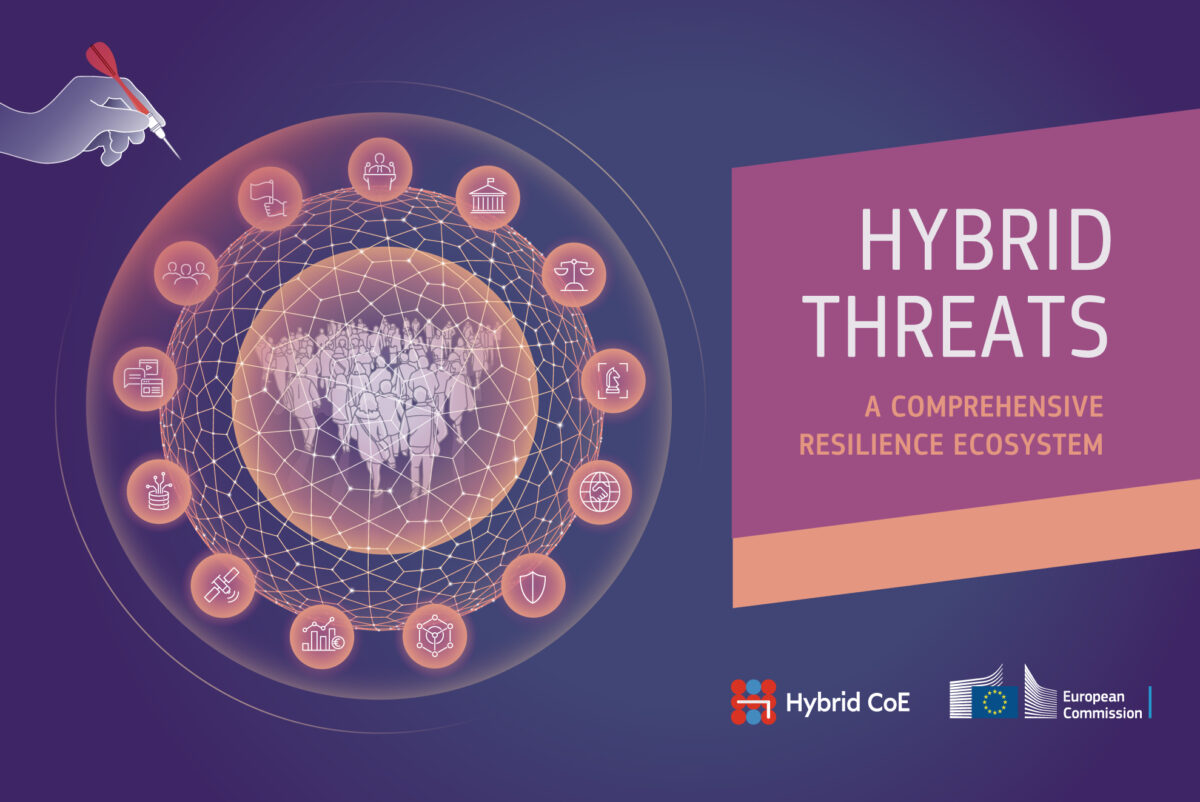The list of hybrid threats launched by authoritarian regimes and other hostile actors against democratic societies is long, with threats ranging from using coordinated disinformation and exerting economic pressure to instrumentalization of migration and launching cyberattacks. In fact, the list of threats is ever-growing as it is meant to challenge the democratic model.
To help counter hybrid threats and support policymakers to defend their societies, the European Centre of Excellence for Countering Hybrid Threats (Hybrid CoE) and the European Commission’s Joint Research Centre (JRC) have constructed a new model suggesting a framework for rethinking resilience comprehensively.
In the newly published report Hybrid threats: a comprehensive resilience ecosystem, the authors propose a Comprehensive Resilience Ecosystem (or CORE) model, an approach which, for the first time, provides a systemic way to help policymakers counter complex hybrid threats in both a coordinated and an efficient manner.
The model presented in the report highlights two factors when we think about a response: Firstly, open societies are ever more connected within and between one another. Secondly, any response should involve the whole of society to counter threats effectively. Thus, the presented model addresses different “spaces” of society (governance, civic, and services) as well as different “levels” (international, national, and local) and, most importantly, their mutual interactions.
Analytically, the model helps to show how the sum of hybrid threat activities challenges democracies by applying different types of pressure to society as categorized in the model.
“This paper showcases the synergies that we can create when we bundle our expertise between institutions and leverage our expert networks in the field of hybrid threats: The report bundles our collective know-how, drawing on lessons learned from five years of intensive research at Hybrid CoE and our exchange with practitioners. It provides essential suggestions based on our work, namely, how to better build resilience in the realms of civil society, governance and services,” stated Jukka Savolainen, Director of the Community of Interest on Vulnerabilities and Resilience at Hybrid CoE.
“We are grateful to colleagues at the EU Commission’s Joint Research Centre for the opportunity to contribute to this landmark report.”
“The new CORE model developed by the JRC and Hybrid CoE is a tangible tool, which will help to defend democratic societies against hybrid threats. The model proposes a systems-thinking approach to help policymakers counter even complex hybrid threats in an efficient and coordinated way,” pointed out Rainer Jungwirth, Team leader for research on hybrid threats at the JRC.
“It is the most recent culmination of the successful collaboration between our two institutions, and it leverages the expertise that the JRC has developed over the years in the area of security research and its links with policymaking. We would like to thank our co-authors for their dedication to this project.”
Overall, the CORE model provides democratic policymakers with a hands-on tool to analyze how authoritarian states or non-state actors employ hybrid threat activity to manipulate or destabilize democracies. The “ecosystem” approach also helps to spot early signals, facilitates their analysis, and identifies responses to counter hybrid threats and build resilience.
Specifically, the CORE model
- maps how malicious actors use various tools against different domains to reach their target;
- helps detect hostile activities and their intensity;
- monitors affected dependencies to avoid possible cascading effects;
- makes it easier to anticipate damage to our democracies; and
- assesses impacts of possible hybrid attacks and campaigns.
As such, the new CORE model is a strategic dashboard for policymakers which helps them to decide which resources, tools and measures to mobilize in the face of hostile activities at EU, Member State or operational level. It constitutes a tangible tool for all Hybrid CoE Participating States to anticipate hybrid threats, assess their impact and guide a response.
Hybrid Threats A Comprehensive Resilience Ecosystem – Executive Summary
More information:
Aleksi Aho, Analyst, Community of Interest for Vulnerabilities & Resilience, Hybrid CoE
Email: aleksi.aho@hybridcoe.fi
Rainer Jungwirth, Team leader, Unit E.2 “Technologies for Space, Security and Connectivity”, Joint Research Centre, European Commission
Email: rainer.jungwirth@ec.europa.eu



